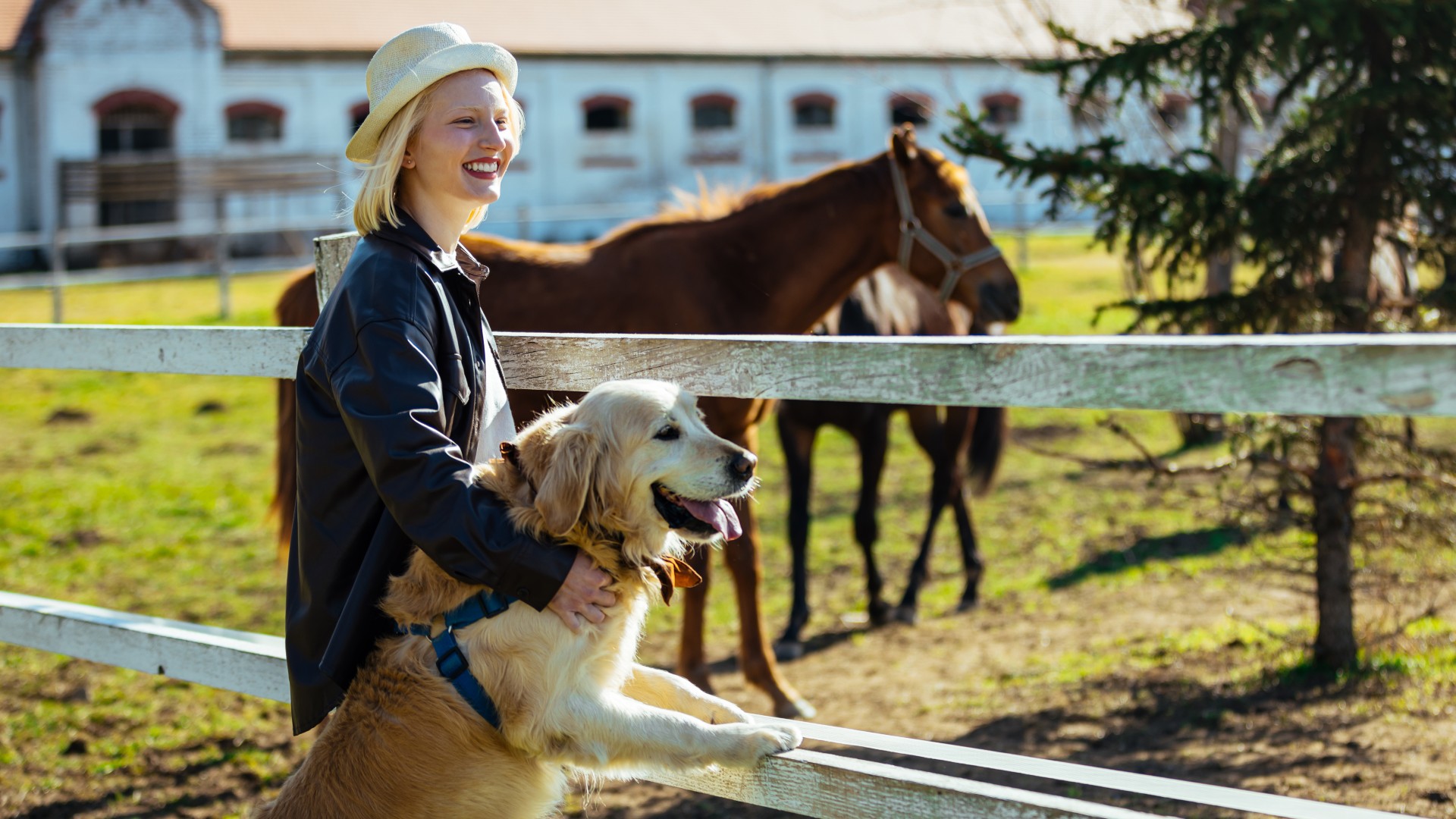This surprising tip might help you socialize your dog, no matter their age!
Take your pup to meet other animal species – even if they don’t get too close, it all helps

Get the best advice, tips and top tech for your beloved Pets
You are now subscribed
Your newsletter sign-up was successful
Every dog parent has to socialize their dog. Socialization is best done when your dog is a young puppy, particularly in the socialization phase in the first three months or so of their life.
But the good news is, it’s never too late to socialize your pup – it might just be a slower, more difficult process, but still one that’s filled with the best dog treats, of course!
No matter the age of your dog, however, there are some slightly surprising ways to help socialize them. And certified dog trainer Melissa Goodman of Mission Pawsitive, who trained at the Victoria Stilwell Academy for Dog Training & Behavior, has discussed one in a recent Instagram post.
A post shared by Melissa Goodman | Dog Trainer (@missionpawsitive)
A photo posted by on
“Socialization is never truly done,” Goodman begins, “And having a well-socialized dog requires maintenance,” pointing out that even a dog who was socialized appropriately as a puppy can still benefit from socialization as an adult. With poor socialization being one of the top three causes of reactivity in dogs, it makes sense to keep up the socialization throughout your pup’s life.
She took her dog, Aspen, to a dog-friendly ostrich and emu farm, and she explained that the pup wasn’t sure what to make of the large birds at first. But, as she explains, “You never know when your dog may experience something new and how they might feel about it, so stopping at a dog-friendly ostrich and emu ranch was a great socialization opportunity.”
After Aspen had inspected the birds from a distance, and received a few treats, she was comfortable around them. Goodman recommends giving your pup exposure to other species of animal when they’re young as one form of socialization, but it’s one that often gets left out.
And remember that interaction isn’t necessarily needed for good socialization to happen! Just being in the vicinity of other animals can help.
Get the best advice, tips and top tech for your beloved Pets
As Goodman wrote in her caption, “The more variety your dog experiences will make it much easier for them to adapt in new situations and be more resilient to handling stress. Aspen was a little hesitant around the animals at first, but because she has had many positive experiences around horses, mules, donkeys, chickens, deer, and peacocks, she was able to acclimate after a few minutes.”
However, it’s important not to force things. Goodman explains that, if Aspen wasn’t comfortable, she wouldn’t have forced her, and would have either stayed further away from the ostriches and emus or simply taken her to the car.
And, if your dog doesn’t have much experience of being around large animals, there’s no harm in starting a little smaller! So, whether you’re bringing home a puppy for the first time or you have adult dogs, why not give this tip a go?

Adam is a freelance journalist specialising in pets, music and culture, and mental health and wellbeing. He investigates and writes the large majority of news on PetsRadar, and collaborates with veterinary experts to produce informative pet care content.
Adam has a journalism degree from Southampton Solent University and a masters degree in Magazine Journalism from Cardiff University. He was previously senior editor at dog advice website DogTime.com, and has also written for The Independent, GoodToKnow and Healthline.
He owns two rescue cats, Bunny and Dougie, and has also previously had a rabbit, fish and Roborovski dwarf hamsters.
